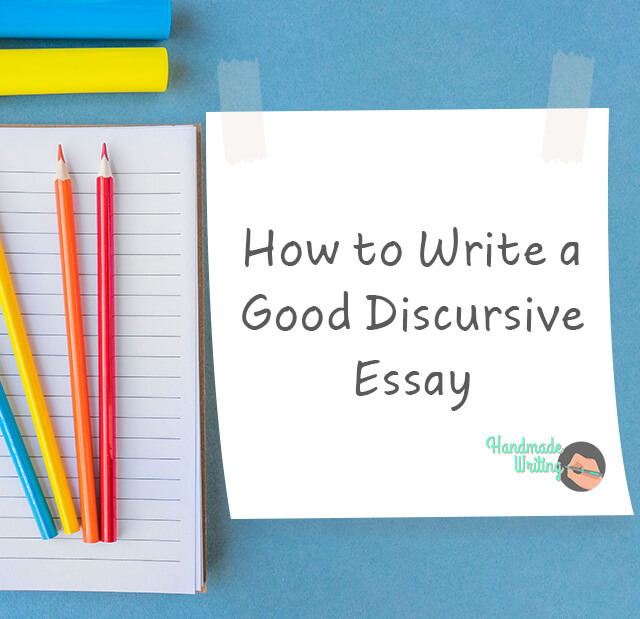What is Discursive Writing?
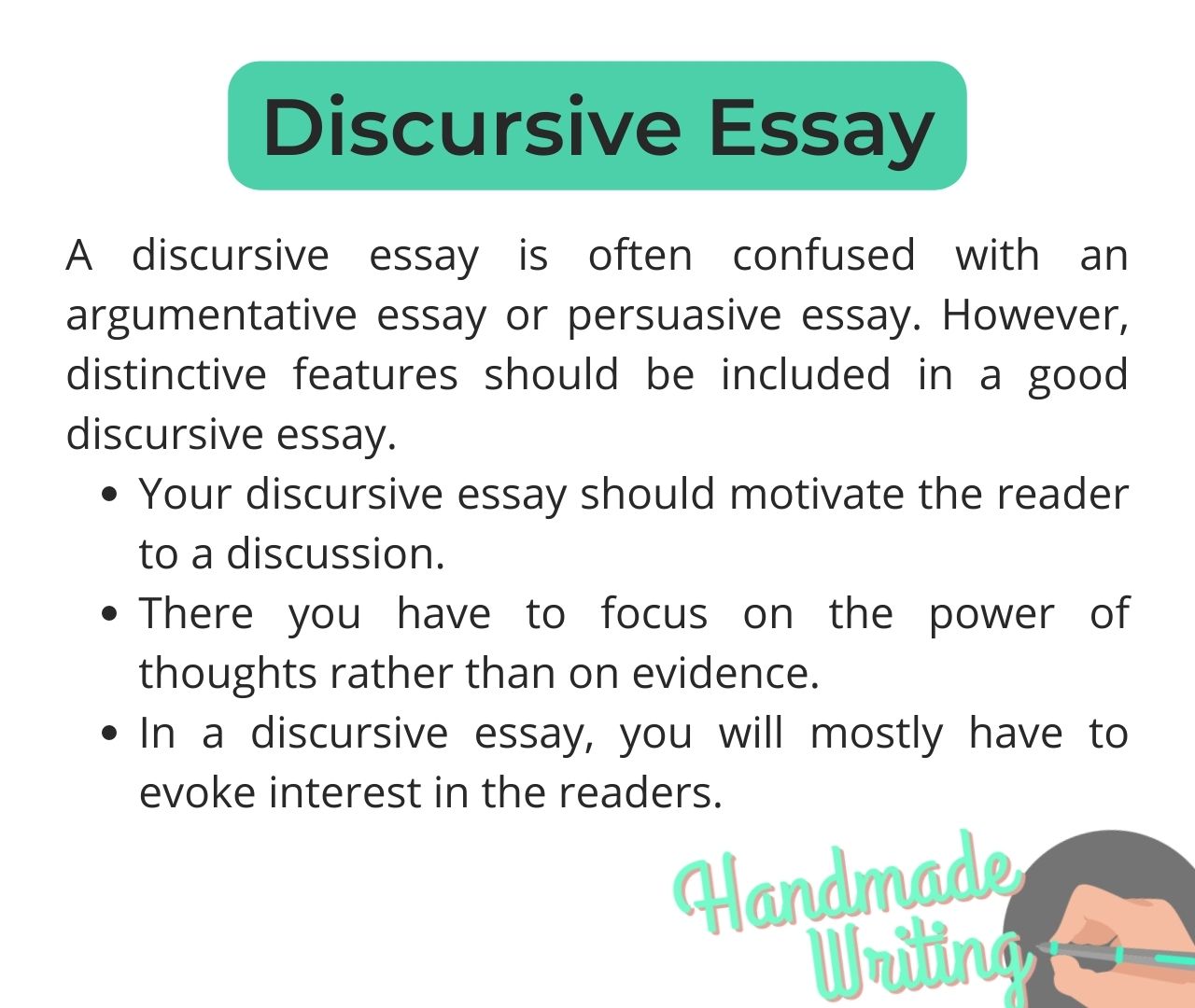
For all those who wanted to know the discursive essay meaning, here it is: a discursive essay is a writing piece, in which the focal element is devoted to an argument. That is, discursive writing presupposes developing a statement that ignites active discussions. After this essay, readers should be motivated to express their own opinions regarding the topic. Discursive essays have much in common with argumentative and persuasive papers, but these are not to be confused. Despite some similarities, discursive writing is a separate type of work that has its specific features and nuances. What we do want you to remember about discursive essays is that you need to concentrate on the power of thought rather than factology and pieces of evidence. In short, your mind is the only tool required to persuade and interest others on the topic you choose.
Discursive Essay Format
Now that we’ve figured out what is discursive writing, it’s time to focus more on the “skeleton” of discursive essay. Like any other piece of writing, discursive essays have clear requirements that help to glue their elements into a coherent paper. By the way, there are many writing services available which can help you present an excellent academic essay. So if you need professional assistance with your task, check them out. But if you want to do it yourself, you can simply take any discursive essay example from the web and use it as a starting point for your paper.
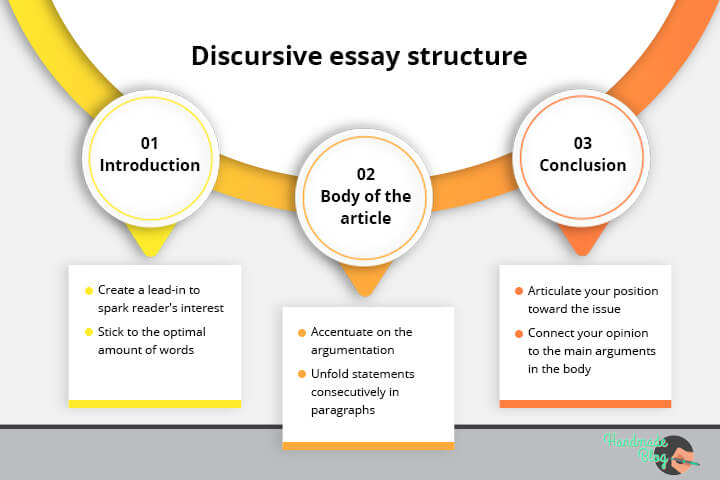
As for the discursive structure itself, you need to start your essay with an introduction in the first place. Create a lead-in that’ll spark the reader’s interest and make them genuinely responsive to the topic. Also, make sure that your introduction is neither small nor extensive. Stick to the optimal amount of words that’ll be sufficient for readers to get the general idea of your essay.
Another essential aspect of an effective intro is your opinion. It’s worthy of note that some discursive essays might require no particular stance on the topic. In situations like this, wait until the end of an essay comes, and only then share your personal view on the matter. This way, readers will understand the neutral tone throughout the piece, shape their own thoughts about it, and later decide whether to agree with yours or not.
In the paragraphs that follow, you’ll need to accentuate on the argumentation. There’s no room for vague and unarticulate expressions at this point. Quite the contrary – you need to unfold your statements consecutively, in a couple of paragraphs, to depict the entire image of your stance for or against the topic. And don’t forget to link your discursive text to supporting evidence.
The last section is the conclusion. Your finishing remarks should clearly articulate your position toward this or that issue, with a close connection to the main ideas in the essay body.
Discursive Essay Thesis
To construct a good thesis for your discursive essay, you’ll need to describe the general stance your work will argue. Here, it’s important to back up the thesis statement with points. These are the opinions that support your thesis and allow to create an affirmative structure for the entire paper.
Discursive Essay Linking Words
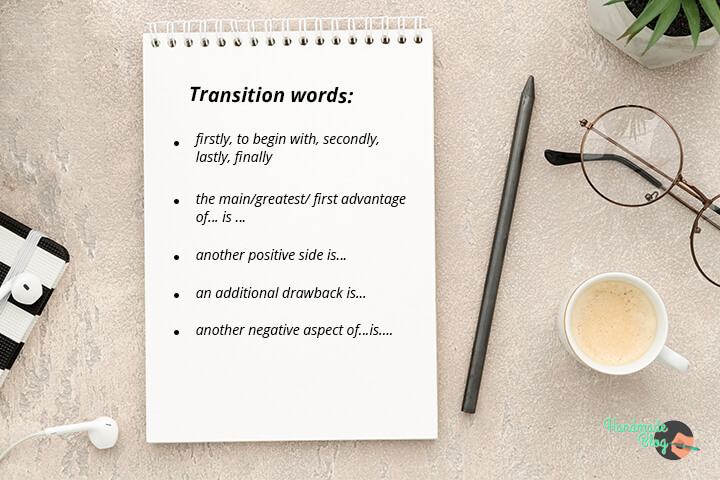
The points you use while writing a discursive essay need to flow smoothly so that readers could see a logical organization of the work. For this, you can use transition words that’ll make your paper easily readable and crisp. For example, if you want to list some points, opt for such words as firstly, to begin with, secondly, lastly, finally, etc. If you wish to point at advantages or disadvantages, consider using these transitions: the main/greatest/ first advantage of… is …, another positive side is…, an additional drawback is, another negative aspect of…is…
How to Write an Introduction for a Discursive Essay?
The introductory part is the critical aspect of creating a good discursive essay. In this section, specific attention should centralize on what your topic is all about. Therefore, it needs to be presented with clarity, be informative, and attention-grabbing. How to make your intro sentence for discursive essay memorable? You can start with a spicy anecdote to add humor to discussion. Another powerful way for hooking readers is stating a quote or opinion of experts and famous influencers. This will add to the credibility of your statements, making readers more motivated to read your work.
How to Write a Discursive Essay Conclusion?
Your discursive essay ending is the climax of your argument, a final link that organically locks up a chain of previously described points. This part is devoted to the restatement of the main arguments that sum up your attitude to the topic. And just like with introduction, the conclusion should leave a trace in readers’ minds. To achieve this result, your closing paragraph should include a call to action, warning or any other food for thought that will encourage people to ponder on the issue and make relevant conclusions.
Discursive Essay Topics
The ideas for discursive papers are so versatile that it’s hard to compile all of them in one list. For such list will extend to kilometers. However, we’ve collected some of them for you to facilitate your work on this task. So here are some discursive essay examples you can use any time:
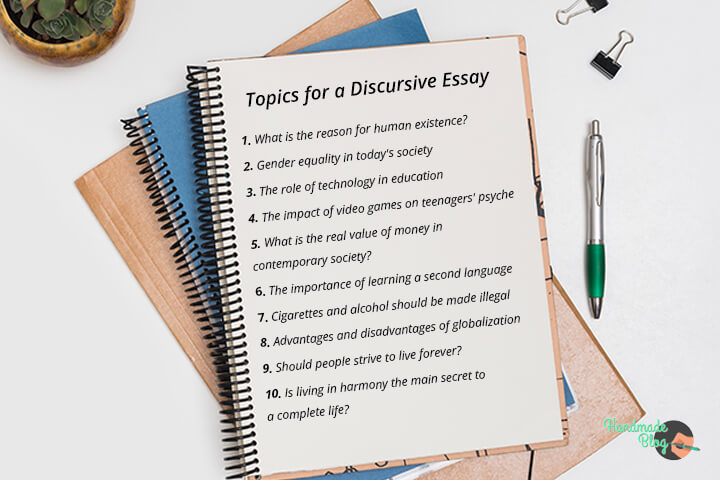
As you understand now, discursive writing definition and discursive essay definition are not as scary as they seem from the first glance. Even though the art of this type of paper is hard to master, over time, you’ll notice significant progress. All you need for this is practice and a little bit of patience to understand the subtle nuances of this task and develop the skill of writing confidently. And if you ever wondered what is an essay, a team of professional academic essay writers can give a helping hand and provide you with a top-notch paper.
